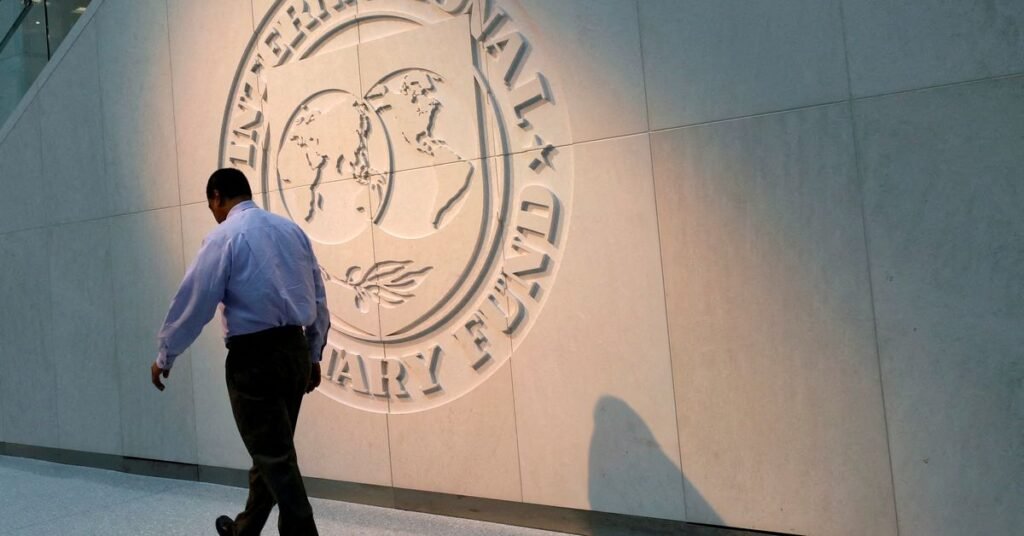LONDON/NEW YORK, April 5 (Reuters) – The Worldwide Financial Fund (IMF) has given Argentina one thing of break by easing financial targets in its $44 billion mortgage deal, however some rosier-than-reality program forecasts could also be setting the South American nation up for extra failure.
The IMF this week lower the extent of international forex reserves Argentina must construct up by the tip of this 12 months by $1.8 billion, citing a serious drought that has hammered manufacturing of high exports soy and corn. It sharply lowered the goal for Q1.
However, analysts pointed to some “optimistic” presumptions within the Washington-based lender's overview of the nation, saying that inflation goals, crop manufacturing, fiscal targets and even reserves buildup goals already regarded out of Argentina's attain.
The IMF pegged 2023 inflation at 60% versus most analyst forecasts above 100%. It has trimmed its outlook for essential money crop soy, however at 45.5 million tonnes soars above native grains exchanges forecasting a harvest of 25 million to 27 million tonnes. Its development forecast at 2% jars with many predicting a contraction.
“In our evaluation, these forecasts are overly optimistic,” Sergio Armella at Goldman Sachs wrote in a report, including Argentina appeared unlikely to have even met adjusted reserves and monetary targets for the just lately accomplished first quarter.
Armella added that Argentina, the IMF's greatest debtor, would face rising pressures later within the 12 months because the nation barreled towards elections in October the place the federal government faces a battle to carry onto energy, with poverty ranges rising.
“The danger that authorities deviate farther from this system's targets will enhance forward of the Oct presidential elections and the (major) elections in the summertime,” he stated.
An IMF spokesperson stated {that a} revision is forthcoming on this planet financial outlook, and the Fund “will assess all end-March targets within the subsequent overview.”

COMMITMENT TO THE PROGRAM?
Argentina – a serial defaulter which has lengthy battled excessive inflation, forex weak point and indebtedness – struck a $57 billion take care of the IMF in 2018 to try to repair its financial woes. That deal failed and a brand new program was agreed final 12 months.
Nevertheless, excessive international costs linked to the battle in Ukraine and one among Argentina's worst-ever droughts has hit the nation's skill to stabilize its financial system and construct up much-needed international forex, placing even the brand new deal below stress.
“A dedication to stay to this system … may turn out to be tougher because the election approaches,” stated Stuart Culverhouse, chief economist and head of fastened revenue analysis at Tellimer Analysis.
“Proof of weakening dedication, throughout the political spectrum, may endanger the completion of upcoming evaluations.”
These evaluations of how Argentina is doing in opposition to its financial targets are linked to scheduled disbursements of funds. Failure to satisfy the targets may stall this system or pressure the IMF to regulate the targets additional.
Kimberley Sperrfechter, Latin America economist at Capital Economics, wrote in a observe that it remained a “tall order” for Argentina to satisfy its reserve accumulation goal by year-end, regardless of it being lower to $8 billion from $9.8 billion.
The IMF web reserve targets are the quantity Argentina must accumulate over time above a baseline of $2.277 billion on the finish of 2021. IMF officers stated that by March 23 web reserves had been round $1 billion under the March-end goal.
“The historic drought afflicting Argentina will trigger a steeper contraction in GDP than most count on this 12 months and intensify stability of funds strains by decreasing export earnings to the tune of 2-3% of GDP,” she stated.
“That may make it arduous to satisfy the IMF's (downwardly revised) FX reserve goal and will increase the danger of a disorderly devaluation.”
Reporting by Rodrigo Campos in New York and Jorgelina do Rosario in London; Enhancing by Adam Jourdan and Jonathan Oatis
: .

